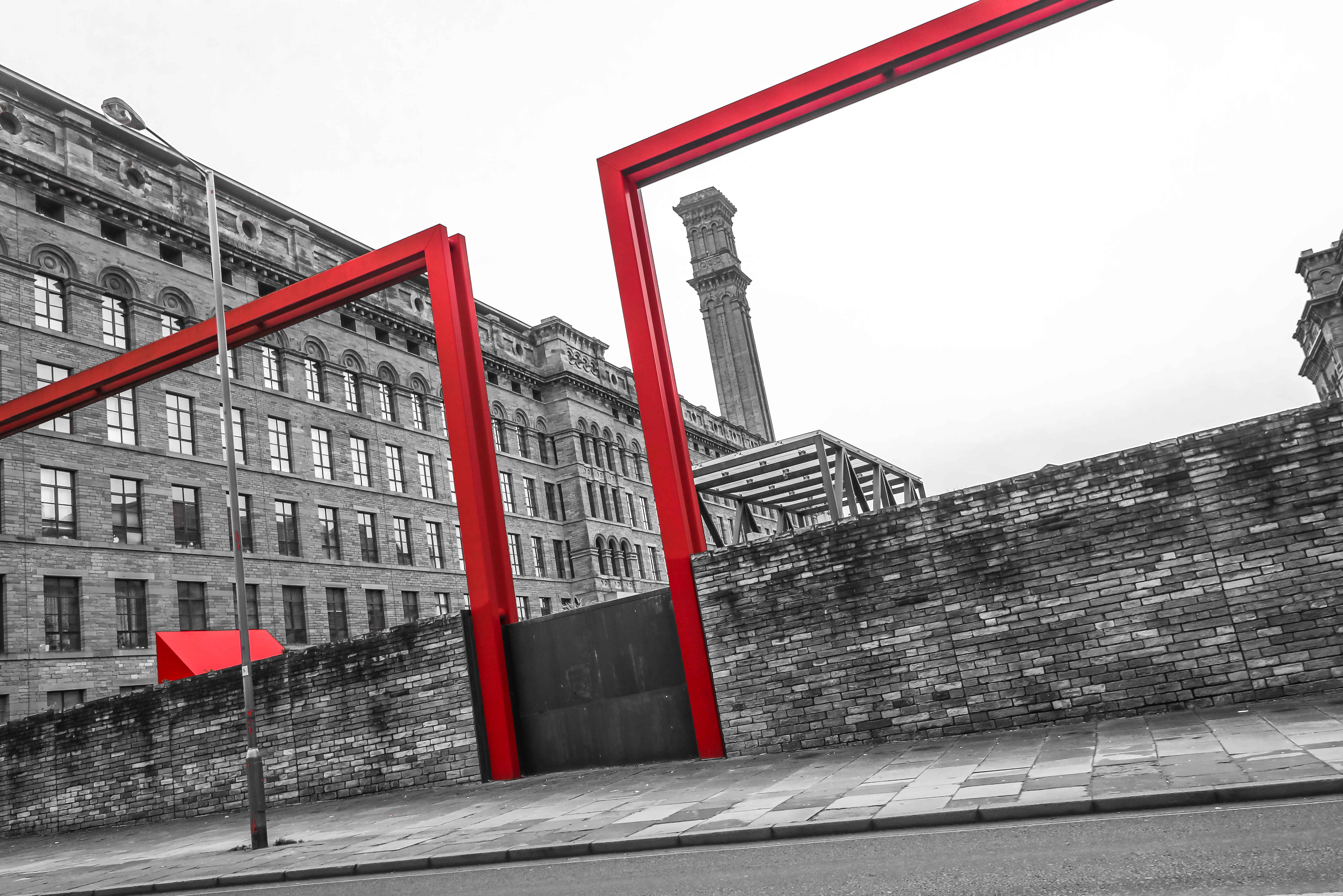A buy-to-let apartment seems like a great idea to many – you purchase a property in the hope that the rental yield will cover the mortgage on it. Whether it’s an investment buy or one for you to live in (in which case, it won’t be referred to as a buy-to-let), buying an apartment requires more than checking out the location and market value. Squarefoot have assembled this checklist of vital things to consider before purchasing a buy-to-let apartment in Bradford;
Purchasing the buy-to-let property
When you buy any type of property, whether it’s a house or an apartment, with the purpose of renting it out you need a buy-to-let mortgage. You can and should only get a residential mortgage if you plan to live in the property yourself. For you to get a buy-to-let mortgage you need to already be a homeowner with property bought cashed out or with an existing mortgage. It’s worth mentioning here that if you buy a property with a residential mortgage but you rent it out, you’re likely to be breaking the terms of your contract, and you may be hit with charges or even asked to repay your loan prematurely.
Things to consider with a buy-to-let mortgage
- The mortgage lender will need a deposit sum
totalling of at least 20% to 25% minimum of the property purchase price for any
buy-to-let mortgages. - Buy-to-let mortgages tend to have higher
interest rates than residential mortgages - Many buy-to-let mortgages are interest only, so
read the small print carefully! This mean means you are simply paying the
interest each month instead of reducing down the debt, and when you sell the
property you will need to repay the Capital in full. - You may need to own a home already and have been
paying your mortgage without any mis-payments or penalties for at least 12
months to be approved for a buy-to-let mortgage. - Stamp duty – We’ve expanded on this below.
- Tax on your rental income – Read further for
more information on this.
Stamp Duty and tax on your rental income
From April 2016, property buyers in England and Wales had to pay an additional 3% on each stamp duty band. This meant the majority of buy to let purchases now attract an additional 3% stamp duty surcharges than they did previously. Additionally, they instilled a reduced starting threshold of £40,000 which means nearly all buy to let transactions will now be subject to Stamp Duty Liability Tax.
Stamp duty is payable by everyone buying a residential or non-residential property in England, Northern Ireland and Wales, including overseas buyers, corporate bodies and non-natural persons.
Tax on the rental income
When you rent a property to a tenant, it is classed as an income so you must pay tax on any profit you make from the rental payment that is not covered by your personal allowance, which is currently set at £11,850 for the 2018-2019 tax year. The amount of tax that you pay depends on which tax band you fall into and the total income you make.
You can estimate your profits by totalling your rental income and deducting any acceptable expenses from this total.
Your rental income includes any money made from related activity such as:
- Rent money paid by tenants
- Utility costs paid to you by the tenant (e.g. gas, electricity, water)
- Fees for cleaning of communal space charged to the tenant
- Parking fees paid by tenants
- Additional fees for the use of furniture that you may charge as a landlord
Ground rent and service charges
Ground rent is a sum of money leaseholders pays the freeholder to occupy the land that a leasehold property is constructed upon.
Ground rent must only be paid if it’s been specified in the lease. If it isn’t, the landlord won’t be able to recover any ground rent from the leaseholder. It important to remember that ground rent is susceptible to increases if the lease includes a clause to say it can be raised.
Services charges cover the cost of any upkeep and maintenance to the structure, but the landlord is only required to provide the services outlined in the lease.
Leasehold service charges include:
- Cleaning of communal areas (for instance
corridors and entrance halls) - Heating the building hallways
- Staff – including concierge
- Management company fees
- Building insurance
- Maintenance and repairs
Service charges are not capped at any amount and they can increase and decrease.
Rental yield
Rental yield is the return-on-investment a property investor is likely to get on a property through rent. It is generally worked out as a percentage figure, by taking the annual rental income of a property and dividing it by the total amount that property has cost the buyer.
When it comes to investing in property, achieving a good rental return is of utmost importance. If your income falls short of your spending, then you lose money. If you are breaking even, then you are not making any money so it would not be classed as an investment per say.
Conveyancing solicitor fees
A conveyancing solicitor is a qualified practicing solicitor who can carry out the conveyancing process on your behalf. The conveyancer will deal with all the small print with law expertise is always useful when dealing with other financial and legal matters at the same time as buying your new home.
As well as a conveyancing solicitor helping you throughout your buying and selling process, their main role is to ensure that the transaction goes through legally. The conveyancing solicitor works out what is included in buying the property, carrying out local searches and consulting with the seller/buyer’s solicitors to choose a completion date.
Any other costs for buy-to-let apartments which may be involved
It is always better to prepare for any additional costs which you may incur during or once your buy-to-let purchase has been completed. Such as:
- Using a letting agent to rent out your new
property - Building insurance (this may be covered under
your ground rent)
Why invest in Bradford?
Bradford is investing in regeneration
Back in 2016, £500m was invested in the City Centre of Bradford with an additional £200m being put in places in the wider district. Now in 2020, we can talk about the estimated £75m investment to attract the ‘Urban Entrepreneurs’ of the future. Here’s a breakdown of some future projects: –
- NEC Odeon Redevelopment
- New Markets down Darley Street
- £9.5m, 125,000 man-hours and 21 months later –
St Georges Hall - One City Park – ‘Grade A’ Office Space
- £17.3m redevelopment – Foster Square Rail
Station - Bradford BID 2025 – Five-year strategy for
traders and service providers to improve the heart of Bradford with
approximately “2.5m boost.
Great rental yields
The comparison site TotallyMoney found that in 2018 the BD1 postcode has the second-highest rental yield in the UK. Attracting students, your professionals and families, demand and rent is high in comparison to the average house prices which have remained affordable. And, Bradford’s Little Germany postcode is even one of the UK’s top destinations for buy to let and currently in 2019 offers a yield of over 9%, the third-best in the country.
Strong local economy
The Bradford economy is worth over an astounding £9.5 billion. The 5th largest city in the UK, its increasing population is over 526,000. The Broadway and surrounding shops, bars and restaurants attract millions of consumers every year. Over 40 large companies with a combined turnover of £30 billion are headquartered in the district.
Opportunities across industry sectors for employment
The growth zone is an initiative worth £35 million put in place to help new and current businesses in Bradford through professional and financial support. Currently boasting the largest manufacturing employment base in the UK, and a financial and business services sector that generates over £13 billion every year, it’s clear why Bradford is one of the fastest-growing cities in the UK.
Now more then ever is the best time to invest in Bradford. For beginner investors, it is a great way to grow capital and move into the larger property markets.
If you would like to know more about any investment opportunities within the City Centre of Bradford contact Squarefoot on 01274 392 971 or email invest@squarefootapartments.co.uk.


